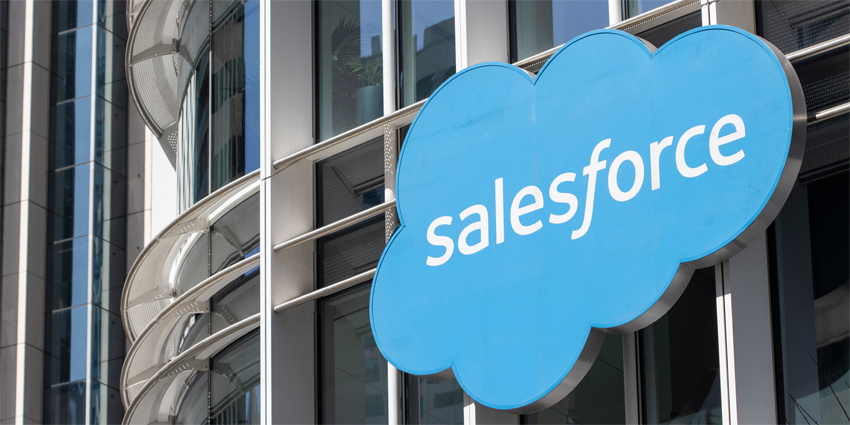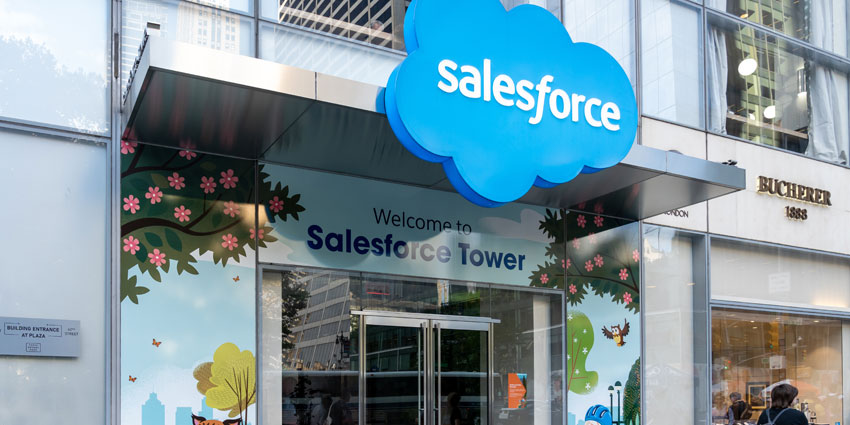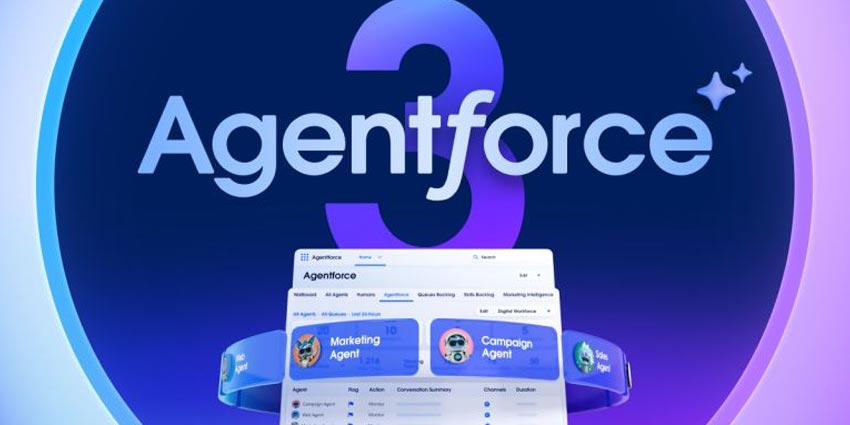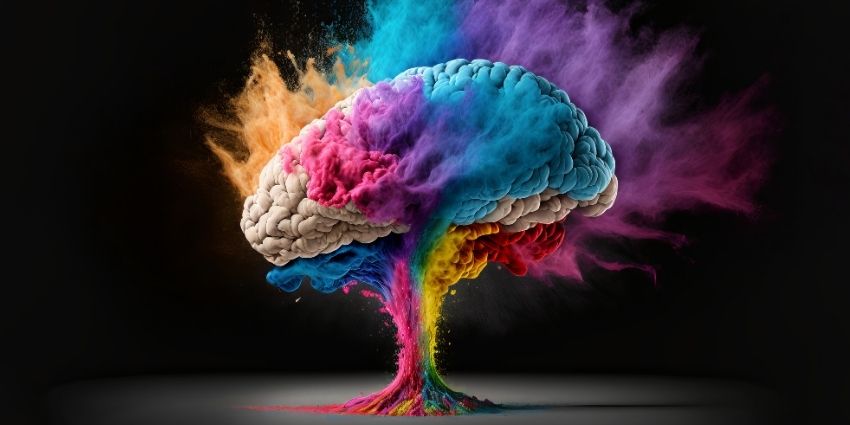CRM will soon become the largest area of spending on enterprise software, according to Gartner.
As CX strategies become increasingly reliant on customer data, this statistic comes as little of a surprise.
So too, when considering the intensity of CRM-dependent innovation. For instance, coupling CRM with the Internet of Things (IoT) allows companies to track and support customers in new ways. Also, pairing it with analytics paves the way for a holistic view of sales, sentiment, and churn.
These are just two examples of many that underline the vast potential of the CRM space.
In this edition of the CX Today roundtable series, our panel of industry experts inspects the arena further, lifting the lid on how the technology is enabling awesome CX. They are:
- Celine Maher, VP, EMEA Commercial at Zendesk
- Jen Ayotte, Regional Vice President, North America Sales at ActiveCampaign
- Christian Wettre, SVP and GM, Sugar Platform at SugarCRM
- Omar Paul, Delivery Director at makepositive (part of Sabio Group)
Learn from their specialist insights below as our panellists answer thought-provoking questions and consider the hottest trends within the space.
How Is AI and Automation Enabling CRM Systems to Improve CX?
Maher: AI and Automation can help companies:
- Reduce response and resolution time
- Gain a greater understanding of their customers
- Provide enhanced experiences and decrease churn
When it comes to time-sensitive requests, like shipping status, AI can flag those tickets and respond in a suitable timeframe. Using AI in this way can reduce the risk of complaint escalations and help brands to retain customers.
AI-powered CRM also tracks trends and points to emerging issues where action is essential.
Alternatively, these tools may identify which products customers gravitate towards and their most asked questions. As a result, businesses can understand customer preferences better and enrich experiences.
By anticipating customer needs and resolving routine tickets, AI frees up agent time to focus on more complex cases that require a human touch. As a result, agents may concentrate on relationship-building conversations, leading to higher customer retention rates.
Also, with over 70% of customers expecting AI-driven conversational service and only 40% of businesses able to meet this expectation – according to Zendesk research – there is a profound need for companies to invest in the space to retain customers.
Ayotte: Customer experience can make the difference between someone choosing a company over its competitors. Businesses must treat every customer like their most important one – whether they have ten or ten million clients.
AI and automation can help companies deliver the kind of one-to-one experience needed today but at scale. Businesses can see what consumers look at on their websites before using automation to make recommendations based on purchases and send abandoned cart reminders.
While this is possible to do manually, automation makes this process quicker and more efficient. It also leaves employees free to handle issues that are too complex to handle through AI or automation and require a human touch.
Wettre: AI and Automation in CRM improve CX by helping users navigate large sets of information and make the right decisions.
Without AI and automation tooling, users can be paralysed by the amount of information they can access and need to provide excellent service.
Paul: AI is increasingly becoming a lot more voice friendly, just like Alexa, and it’s becoming more natural to have a conversation with a bot.
Significant advancements in AI and Machine Learning for analysing text are to thank for this. Indeed, AI-powered solutions now understand sarcasm and deliver the same accuracy in analysing feedback as humans.
As a result, companies can infuse CRM systems with relevant sentiment and factual data, which helps improve the customer experience.
Finally, automation improves the experience further as systems do not forget to notify people or send information as scheduled. As more systems become integrated, more automation opportunities come to the fore.
How Can a CRM System Supercharge a Hyper-Personalization Strategy?
Maher: An open and flexible CRM platform enables CX teams to pull intelligent insights about their customers to inform their personalisation strategy by connecting customer information from across their business.
Such customer intelligence includes what products they like, what problems they’re looking to solve, and so on. By combining this information, companies can build profiles of their end-users.
Zendesk research found that 83% of UK customers said they were likely to spend more with companies that can offer them the personalisation and streamlined experiences they’re looking for.
Indeed, customers want to feel understood and have grown increasingly comfortable with companies collecting their data — as long as it helps improve CX.
The right CRM tools will empower agents to enter conversations with the right insights, ready to engage with the customer using their intel proactively. Agents can target what a customer needs and use this information to problem-solve, upsell, and create brand loyalty that drives business success.
Ayotte: CRMs that connect data between different systems enable businesses to understand who their customer is at every touchpoint and respond in a personalised way.
A CRM can track customers’ likes and dislikes based on purchase history and interactions across numerous channels. Knowing this information means the system can automatically recommend supporting products or information that will help customers maximise the value of their purchase.
For example, a software provider might follow up on a subscription with video walkthroughs on best practices. Or, it may automate a follow-up after a closed support ticket to check that the customer was satisfied with the response and doesn’t require additional support.
It can also track less engaged customers, so messaging builds customer relationships that ultimately help the business grow.
Wettre: Hyper-Personalisation demands the availability of detailed information. A CRM system brings the rich customer detail from across the company, some of which users can collect from one-on-one customer interactions.
When marketing can tap that information learned from one-on-one contact, they have a new level of ‘real-time’ detail to use in their personalisation tactics.
Paul: CRM is about creating robust relationships, and we all know relationships are best built through personalisation.
Modern CRM systems incorporate AI, machine learning, and lots of intricate data, which is crucial for any hyper-personalisation strategy.
Apart from data, tailored customer journeys are vital to delivering the best-personalised experience.
Sophisticated Marketing management solutions – a part of most CRM solutions – can now deliver hyper-personalised user journeys too.
Which CRM Integrations Can Support Excellent CX?
Maher: CRM integrations give agents a connected view of a customer’s profile across various systems in one connected platform.
For example, omnichannel tools lead to a seamless flow of communication throughout the customer’s journey, where the conversation history and context travels with them from channel to channel, preventing customers from repeating themselves or getting stuck in a conversation loop with a chatbot.
Integrations that support chat are also integral to winning CX strategies. Enquiries over WhatsApp or Facebook Messenger jumped 36% last year, higher than any other channel. CRM integrations that enable conversational CX support can help businesses reach their customers simply and effectively, encouraging repeat business and fostering goodwill.
With a tool like Zendesk, third-party developers also have countless integrations to provide niche solutions customised to a company’s needs.
A CRM provider should work with these developers to extend the functionality of the CRM for every client’s business. This ensures agents can focus on delivering excellent CX rather than hopping between tools and trying to connect disparate bits of customer information.
Ayotte: Every business needs different integrations to support CX depending on their business. An integration that is right for one company might not be for another.
As an example, eCommerce businesses might want to connect to Shopify to sync contacts and purchase information. Whereas consultant-based businesses might utilise Zapier to send contact information into project management tools like Trello or Asana.
ActiveCampaign customers have access to 870+ integrations, including Microsoft, Facebook, and Salesforce. These become powerful for businesses when they can unify communications from marketing to one-to-one sales to transactional messages, such as order confirmation or delivery updates. Consumers expect these types of updates available to them in seconds, not minutes.
Having the right integrations with the CRM will likely enhance customer satisfaction across the entire customer journey, from marketing to sales to customer success.
Wettre: CX is powerful when users have all information about the customer at their fingertips. Integrations to order fulfilment and ERP systems are especially beneficial to enable CRM users to serve their customers.
Adding digital channels and bots also helps provide a CX environment that is available on the customer’s terms and meets increasing digital expectations.
Paul: Businesses rely on a diverse set of intricate data to support CX strategies, alongside the ability to deliver insight for critical business decisions.
Such data spreads across different systems within the business, such as finance, order management, or reservation systems etc., thanks to integrations.
One of the most common integrations is between CRM and ERP, allowing a business to provide a view of customer and financial information.
While this is essential for developing the right business strategy, integration with other systems, such as self-service portals with enhanced user journeys and systems linked to customer order data etc., can further enhance the experience.
Which Other Innovative CRM Trends Should CX Leaders Stand Up and Take Notice Of?
Maher: Conversational CRM and AI are important not only for customer experience but also for employee experience. With remote working being the norm over the past two years, the need to connect distributed teams continues to grow. After all, a brand’s employees are its internal customers – and they want seamless experiences too.
The best way to support employees in times of uncertainty is to invest in tools that – at their core – are flexible to changing needs. This allows HR teams and employees alike to communicate in an agile manner.

People want to help themselves, which is possible with AI pointing employees to the right resources, like FAQ articles. Similar to AI freeing-up space for agents, AI can also free-up space for HR personnel to work on more high-level issues. Overall, this creates better informed and connected teams, offering the support they need to focus on what is most important.
Ayotte: AI capabilities will become more sophisticated to analyse data from different sources and predict where leads will come from.

Lead scoring, where values are assigned to leads based on buying intentions, will become increasingly automated using AI, which will even detect trends based on won deals.
Win probability is another exciting area where machine learning uncovers how likely a lead is to convert and helps sales teams understand where they should prioritise their time.
More self-serve options are also likely to come to the fore. According to Statistica, 88% of customers now expect brands to have an online self-serve portal, making it easier for customers to find information quickly.
Yet, most self-service portals currently don’t integrate with other systems. So, in the future, it’s likely that these will be more integrated into CRM systems.
An example is chatbots, where customers can check order status, ask questions, or receive personalised offers.

Wettre: CX leaders should be aggressive in helping users across the enterprise to access and utilize data analytics.
We see the use of ‘micro-analytics’ where the power of business intelligence systems is available, when and where individual users need it, as a significant CX opportunity.
Paul: Here are three of the hottest CRM trends:

- There is a great focus (quite rightly) on data and insight, so enhanced business intelligence reporting capabilities are in demand.
- Speech and text analytics tools are helping business understand their customers through feedback surveys, chat text, and voice transcripts.
- AI capabilities are becoming increasingly sophisticated, allowing contact centre agents to focus on creating genuine customer relationships that maximize the human touch in CX.
Miss out on last month’s roundtable? Check it out here: Evaluating CCaaS Platforms







